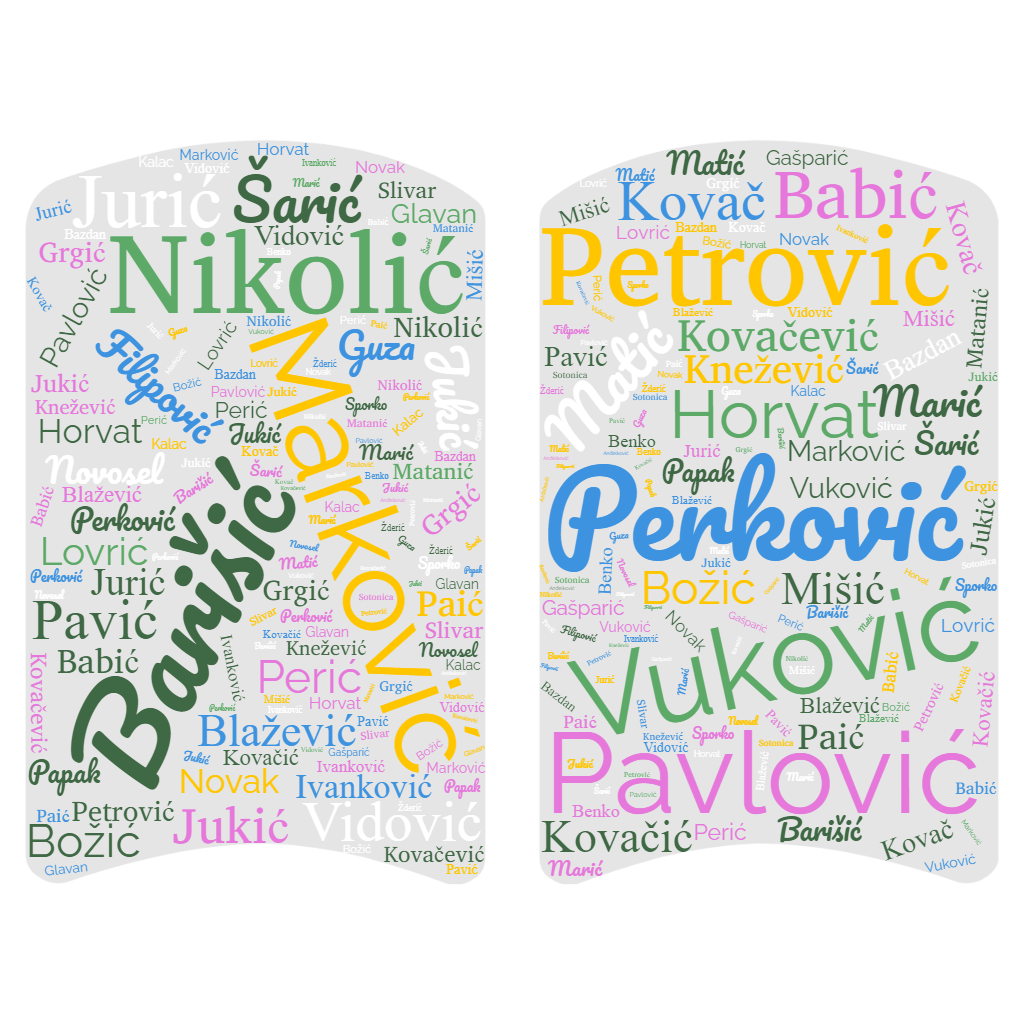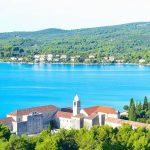October 13, 2023 – If you’ve ever been to Croatia, or met any number of Croatian people, you must have noticed the ending of so many Croatian last names. It’s always this –ić, that –ić. And if you speak Croatian at any level, some surely remind you of other words as well. Read on for the resolution of all your –ić mysteries, discover the most common and the rarest of Croatian last names, and have a laugh on us with some of the funniest.
According to the Croatian Language Institute’s portal Jezik, Croatians were the first among the Slavic nations to carry last names. The first surnames among Croats were recorded at the end of the 11th and in the 12th century, primarily in Dalmatian cities (at first in Zadar, Trogir, Split, Dubrovnik and Kotor). For comparison, the oldest Russian surnames only date back to the 16th century.
So… Why do Most Croatian LAst Names end In -Ić?
Oh, I know this one! Similarly to Scandinavian countries, for example, -ić in a way denotes an offspring. It is a common suffix for diminutives and it could mean that you are a junior, small, and/or cute. Maybe all of the above. An excellent example, if I may note, is the last name of yours truly – Anđelković – which was derived from the Croatian word for angel. And nomen est omen…
Now, though -ić might be the most common, it is not the only ending. According to their origin, Croatian onomastics (study of proper names) distinguishes four basic groups of Croatian surnames: formed from a personal name, nickname, occupation or geographical origin.

Most Common Croatian Last Names
The most common Croatian last name, by far, is Horvat. It likely denotes the geographical origin of its bearers, and it is very common in Hungary, Slovakia and Slovenia as well. According to latest data, there are over 21,000 Horvats in Croatia. Fun fact: bearers of the surname Horvat are mostly descendants of settlers who fled before the Ottoman invasion. Other examples that might be tied to the same event include Novosel, Novoselec and Novak (rough English translations for these could be “the new guy” or “newly moved”).
The last name Kovačević takes the second place with slightly more than 15,000 Croatians carrying it. Kovačević is derived from the Croatian word for locksmith, kovač. Since this was such an important profession, its other variations, such as Kovačić and Kovač are fairly common, too. Babić, Marić and Jurić follow, along with the previously mentioned new guys, and Knežević – denoting a somewhat royal origin of a prince or earl.

The Mocking Tradition and Funny Croatian Surnames
Once you know the common ones, of course you’re here for the rare and funny versions of Croatian last names. According to the Croatian linguist Domagoj Vidović, as Danas writes, Croatians have long nurtured what he calls a mocking tradition. Many of our last names therefore came from funny nicknames.
Examples include Tupša (blunt, silly) and Sporko (slow). Večernji lists a few more, such as Znaor (curious, know-it-all), Žderić (loves to eat), Kenjalo (poopy), Bazdan (smelly), etc. According to the portal Srednja, there are also more than 500 bearers of the last names Papak (hoof, derogatory for a cautious, too nice of a male person), and over 50 Pičkas (straight up pussy). Finally, as an antidote to rare angel people that are Anđelković, there are 33 little satans in Croatia – bearers of the last name Sotonica.










